DRC: Cash grants power dreams of peace for survivors of conflict
How a World Food Programme resilience project in the Democratic Republic of the Congo is helping one family begin anew after their home was burned down
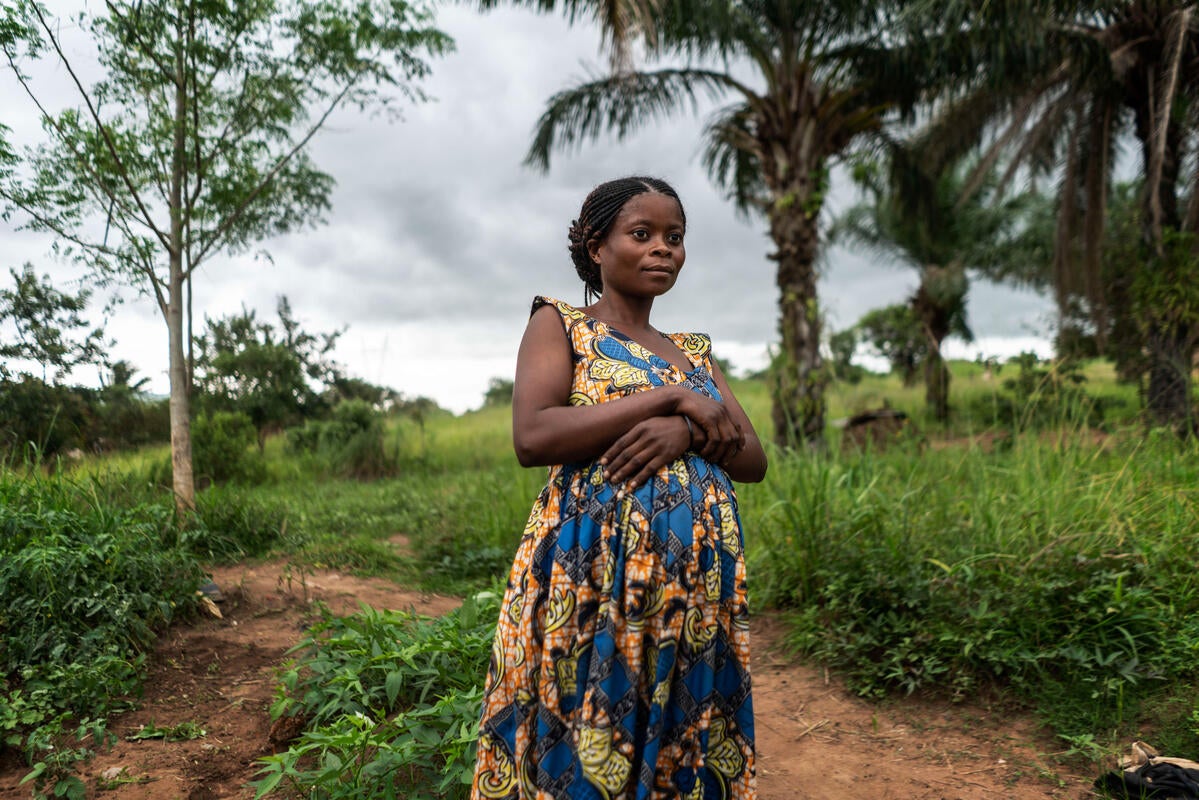
Your support helps us to tell the story
From reproductive rights to climate change to Big Tech, The Independent is on the ground when the story is developing. Whether it's investigating the financials of Elon Musk's pro-Trump PAC or producing our latest documentary, 'The A Word', which shines a light on the American women fighting for reproductive rights, we know how important it is to parse out the facts from the messaging.
At such a critical moment in US history, we need reporters on the ground. Your donation allows us to keep sending journalists to speak to both sides of the story.
The Independent is trusted by Americans across the entire political spectrum. And unlike many other quality news outlets, we choose not to lock Americans out of our reporting and analysis with paywalls. We believe quality journalism should be available to everyone, paid for by those who can afford it.
Your support makes all the difference.Kisimba Emedi remembers waking to sounds of gunfire edging closer to her home in the southeastern village of Tundwa in the Democratic Republic of the Congo.
“We knew we had no time to lose,” she says, as she prepares fish for dinner for her children, whom she “grabbed … and ran into the forest” on that night of terror.
Gunshots rang out and the adults were on edge, fearing that the smaller children might cry out and give away their hiding place. The only option was to flee.
Kisimba’s story is hauntingly familiar across the DRC, where protracted violence has uprooted millions from their homes – including hundreds of thousands in the southeastern Tanganyika province. Intercommunal conflicts have grown in intensity in recent years, leaving a trail of burned-out villages and looted crops. The country has Africa’s highest number of internally displaced people.
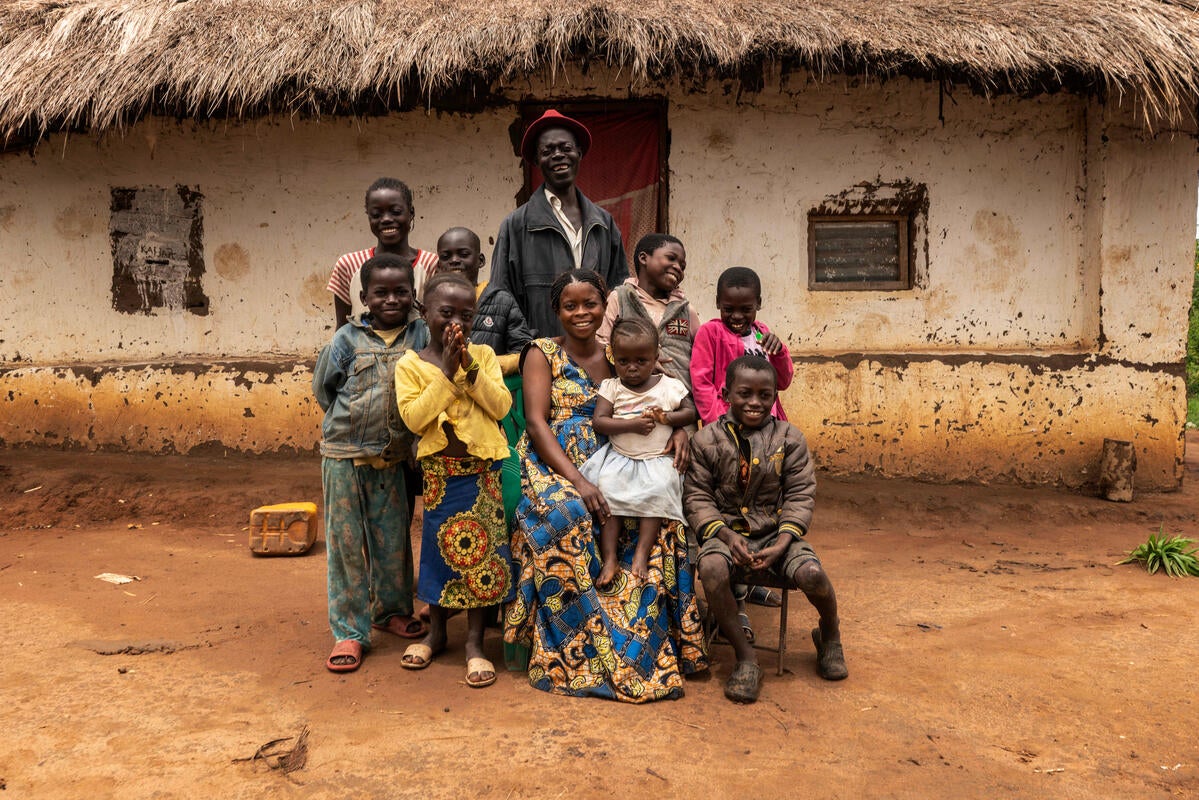
The unrest has also deepened hunger and malnutrition in the region, forcing families to abandon their farms and other sources of livelihood.
But today, some, like Kisimba, are building back their lives, partly thanks to cash provided by the World Food Programme (WFP) – cash is a form of humanitarian assistance developed to empower people to buy the foods and essentials they need.
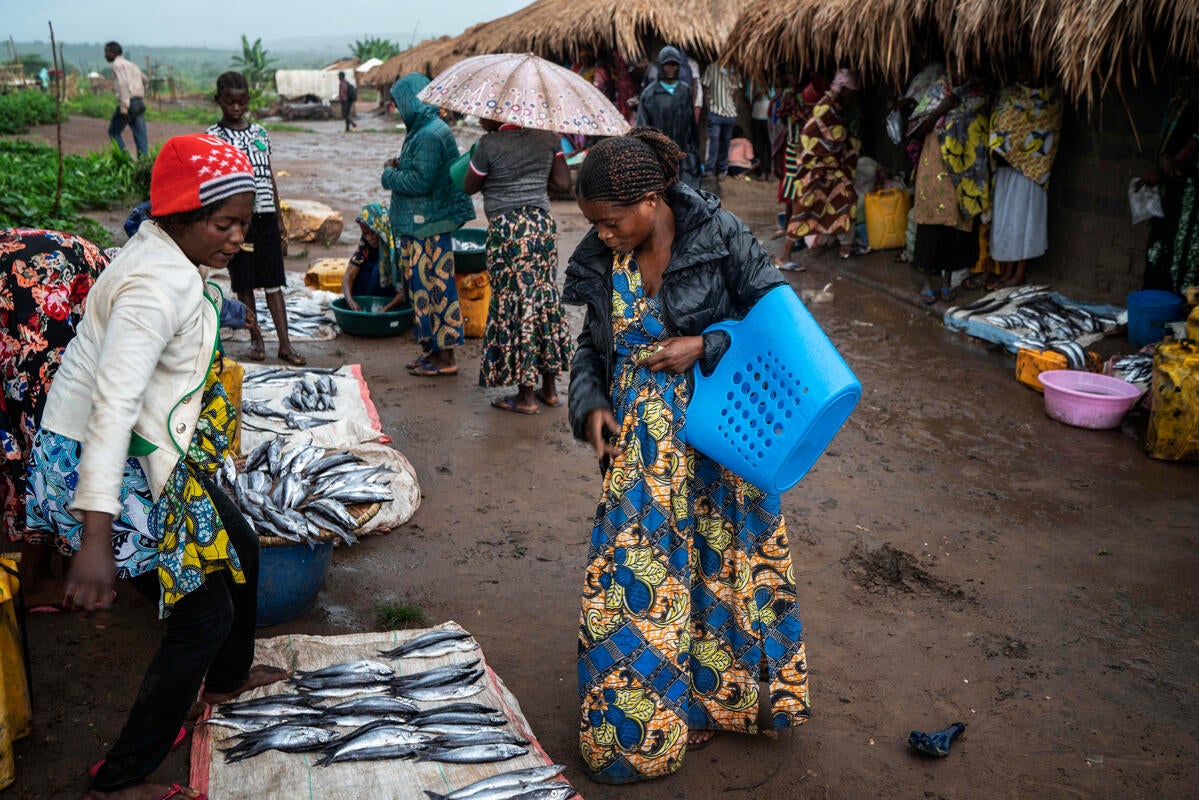
“Along with helping us put food on the table, the great thing about cash is that it enabled us to prioritise our needs and build for the future,” says Kisimba. “If we had received food, I may have been tempted to sell some to address our other needs.”
***
After the attack five years ago, Kisimba and her husband led their family to the relative safety of Kalemie, a port town on the shores of Lake Tanganyika.
During the difficult journey, they ate only the scarce food they could find along the way. In Kalemie, however, the couple quickly realised that without their own plot of land, and the support of relatives, they were going to have a hard time.
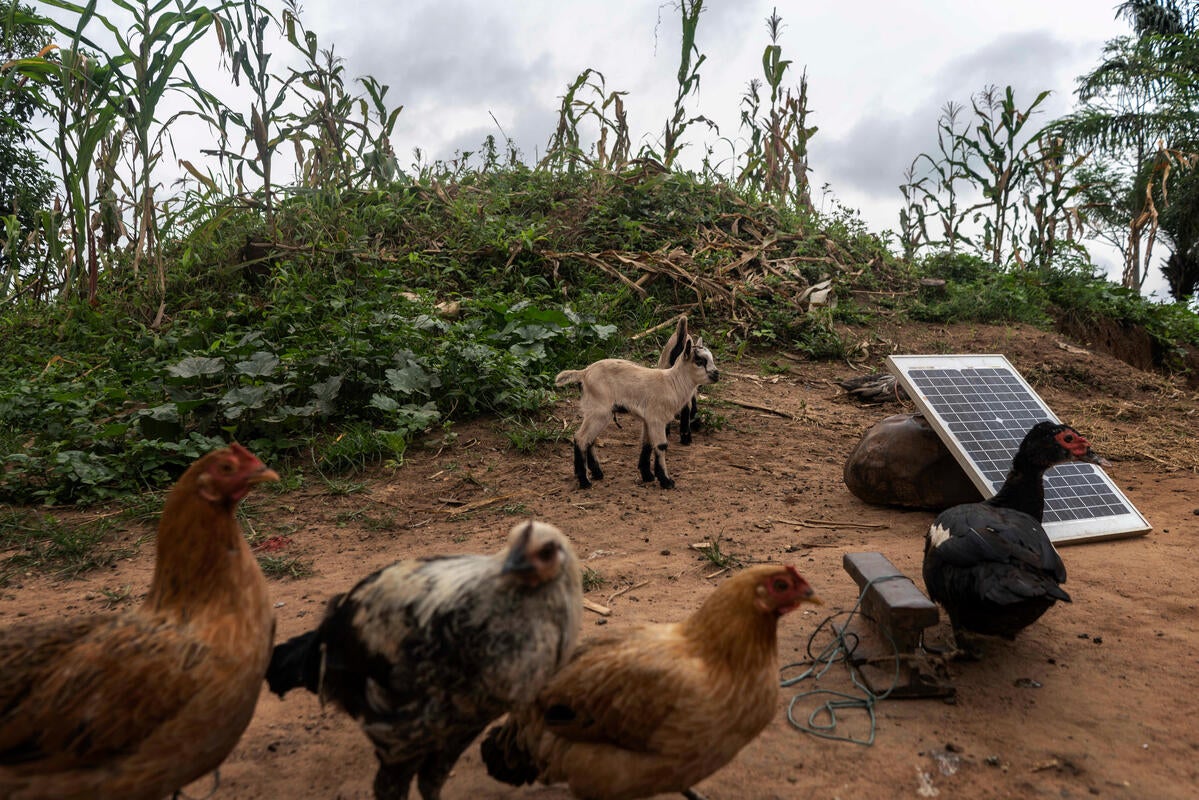
“We had been used to feeding the children from the crops we grew,” says Kisimba of her extended family – she is also responsible for nieces and nephews whose parents were unable to feed them. “In Kalemie, the only work we were able to find was manually crushing stones. My husband and I crushed stones from dawn to nightfall while my eldest daughter looked after the other children.” Small-scale construction sites in the DRC depend on stones crushed manually for aggregate.
Even though they were working all day, every day, they weren’t earning enough to eat.
“We ended up eating just cassava leaves with salt,” says Kisimba. Cassava is a popular vegetable, with its root consumed for starch and the leaves boiled into a sauce. “The children started to look sick all the time”, and still complained of being hungry.
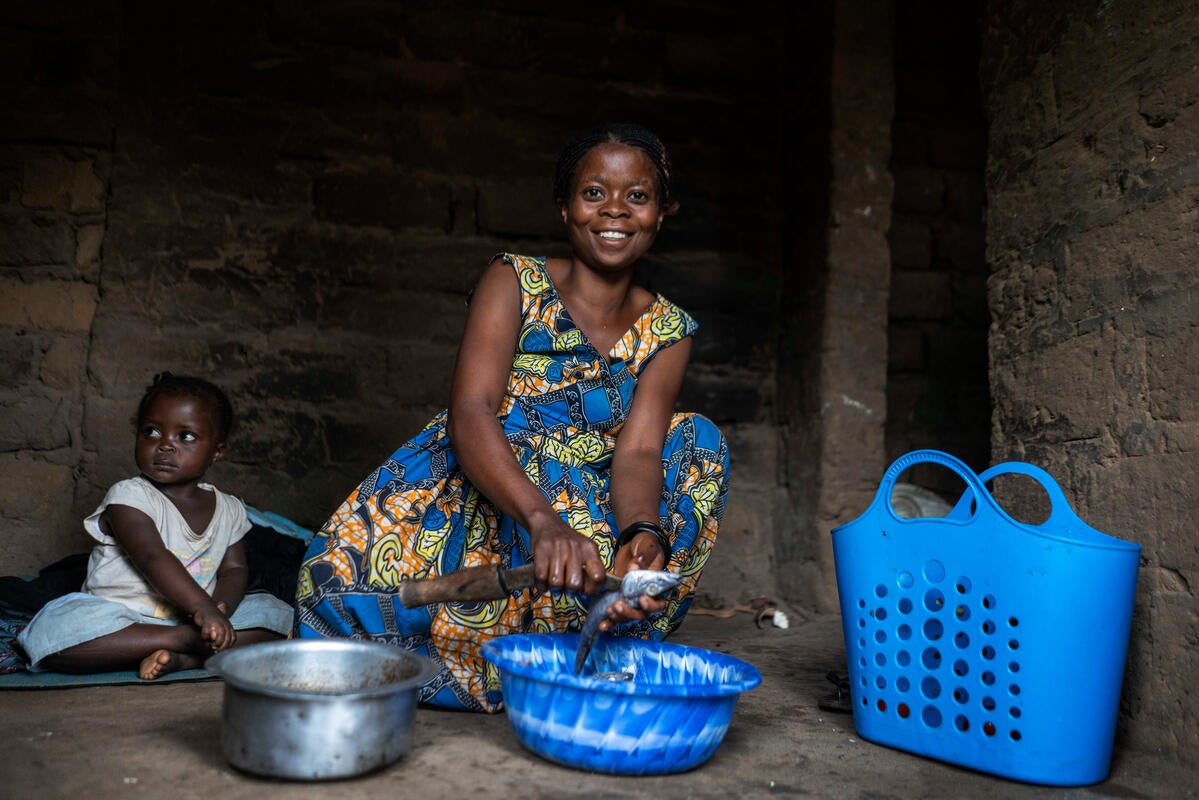
The couple were left with no choice but to return to their village. They arrived in Tundwa exhausted and weak and found their worst fears confirmed.
“The house had been burned down,” says Kisimba. “Everything was gone – the crops, the animals we had, the cooking pots.
“We were again surviving on cassava leaves – but at least we were home, and we felt more hopeful.”
Neighbours who had also returned helped with food.
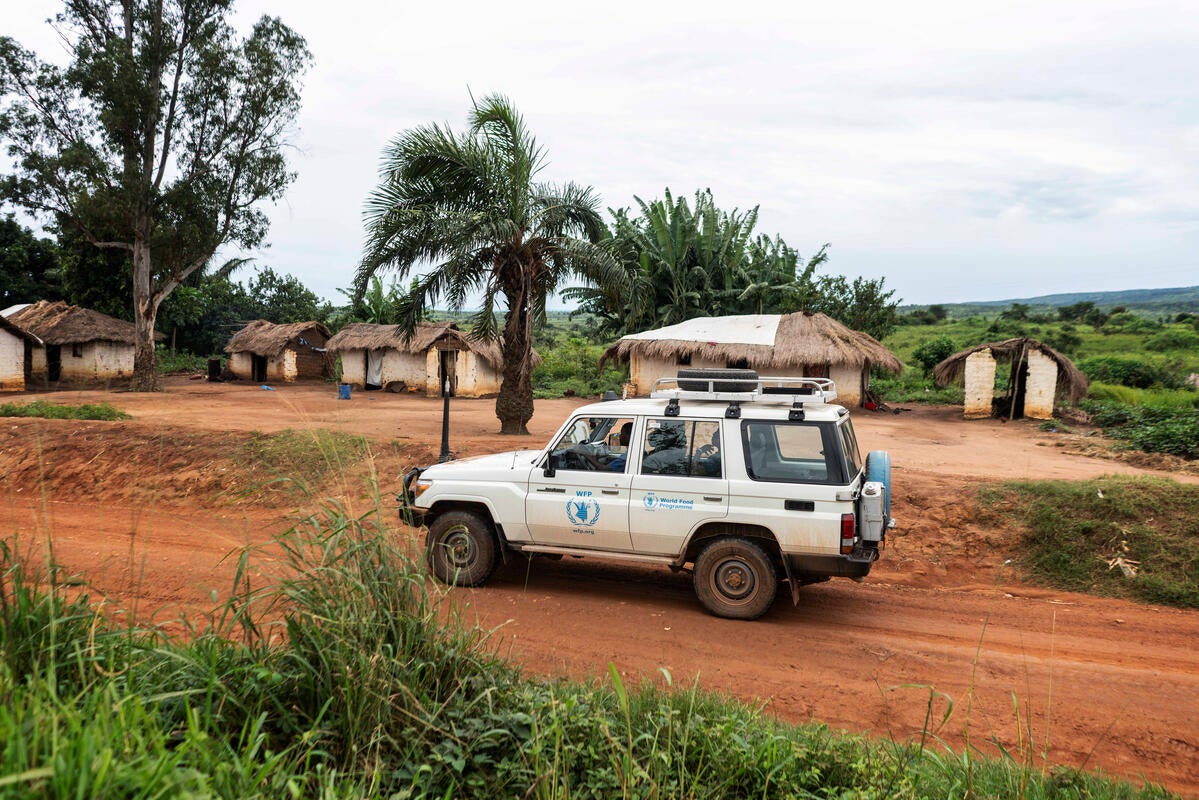
They settled after some time, and Kisimba gave birth to the couple’s youngest daughter, Kyabu.
“It was then that we heard that WFP was starting a cash assistance programme for returnees and that our family was eligible,” she says.
Kisimba was registered to collect cash for the family – with eight members, that amounted to the equivalent of US$100 (£74). On the day she collected it, she and her husband sat down to figure out how best to use the money.
They paid neighbours to help them clear new land to expand their harvests of maize, cassava and beans. They invested in hens and goats as insurance against hard times.
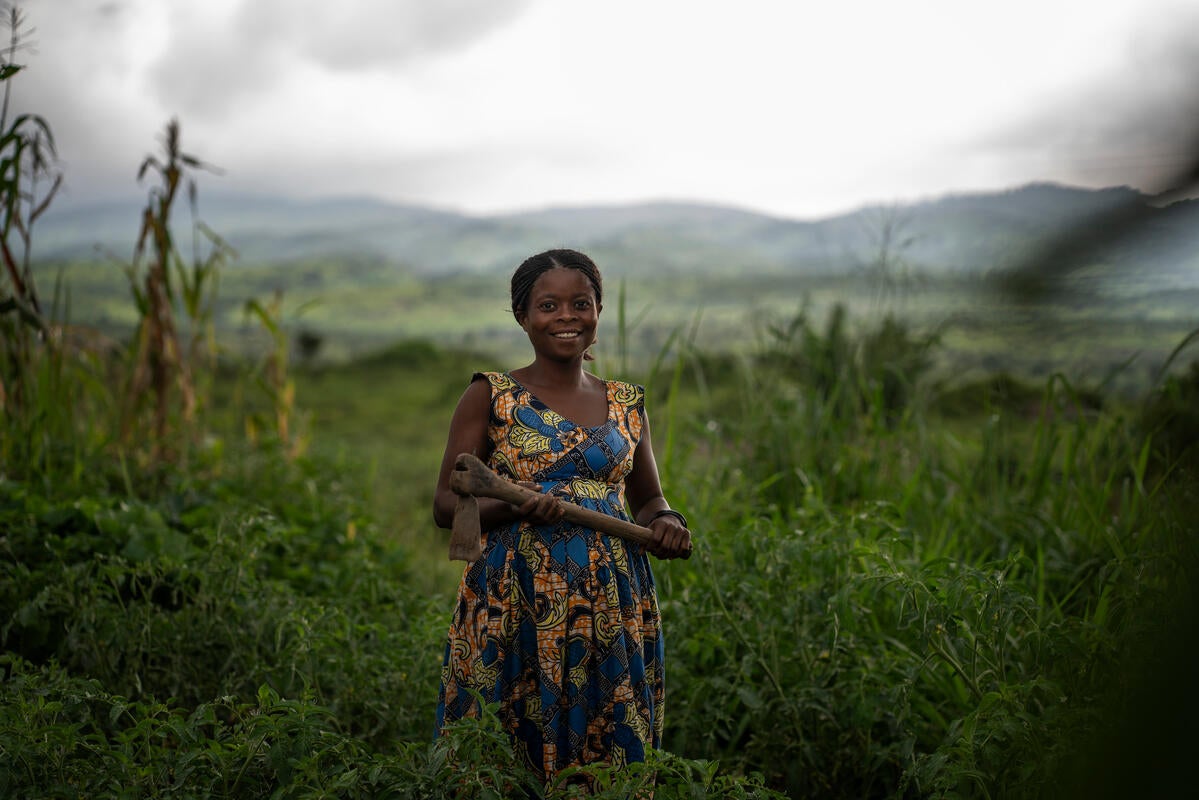
The investments paid off. The couple now sells their surplus crops, and the profits ensure a varied diet – including fish, which Kisimba’s children are particularly fond of. They have also bought a mini solar panel, which brings in money – neighbours pay them a small fee to charge their phones.
“It makes me so happy when I see my children running around after they have eaten their fill,” says Kisimba. “All we hope for now is that peace will continue in our village.”
The main donors behind WFP’s cash assistance programmes are the European Union’s Civil Protection and Humanitarian Aid Operations department and the UK’s Foreign, Commonwealth and Development Office. Flexible funding from other donors, notably Sweden and Germany, is also used in cash programmes.
Join our commenting forum
Join thought-provoking conversations, follow other Independent readers and see their replies
Comments